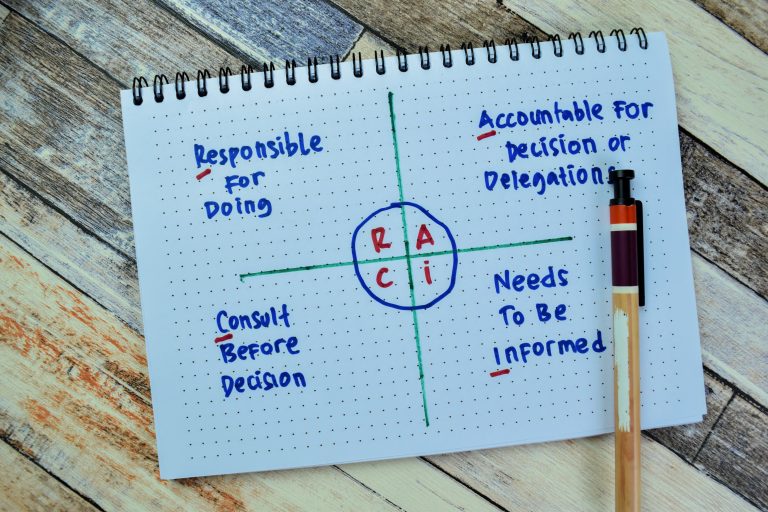Table of contents
ToggleShare this article
What is marketing project management software?
Marketing project management software is a specialized tool designed to centralize, organize, and manage marketing campaigns and ad hoc projects. Like other flavors of project management software, it streamlines collaboration, automates repetitive tasks, and pinpoints bottlenecks that slow projects down.
And to help you decide on the best marketing project management software, here’s a list of our hand-picked favorites and what sets them apart:
- Asana is best for intuitive task management.
- ClickUp is best for aligning goals and collaborating across tasks.
- monday.com is best for end-to-end project management.
- Wrike is best for its scalability.
- Zoho Projects is best for setting campaign goals and milestones.
Sept. 19, 2023: We added our expert recommendations to help you make the best purchasing decision for your business.
We picked our recommendations with you in mind.
First, we evaluated the leading project management solutions available on the market today. We used vendor demos, technical documentation, and user reviews from customers like you to compile our research.
We then narrowed our selections to the platforms that best addressed the most common project management concerns among marketers. These factors included file storage, collaboration, task management, campaign tracking, and scalability.
As the market changes, we reevaluate our choices so you always receive the best insight for your purchasing decision.
Featured partnersFeatured Partners
Our picks for the top marketing project management software
Asana: Best for intuitive task management
Pros
- Route requests quickly.
- Insightful project views.
- Streamlined approvals.
Cons
- Lacks time tracking.
- Can be overwhelming.
- Not suitable for complex projects.
Asana is feature-rich project management software designed for marketing teams. Its smooth onboarding and easy-to-use interface allow teams to plan, organize, and follow transparent workflows, ensuring the successful delivery of marketing projects on time and within budget. With its workload view, you can easily see who is overloaded and who can take up more work, optimizing resource utilization.
Feedback tracking
You can easily convert feedback into actionable tasks, ensuring that nothing gets lost in communication and everything is tracked properly. This feature bridges the gap between client feedback and team execution, making collaboration more streamlined and responsive.
Task prioritization
Asana enables you to set priority levels for different tasks, making managing and organizing work easier. You can also mark task status for greater progress clarity and easily customize project workflows. The ability to prioritize tasks helps focus on what’s most urgent and important, aligning the team’s efforts with organizational goals.
- Free plan available.
- Premium plan starts at $10.99 per user per month, billed annually.
- Business plan starts at $24.99 per user per month, billed annually.
We chose Asana for its rich features and intuitive design. Its ability to automate processes, turn feedback into tasks, and set task priority levels makes it a versatile tool for managing marketing projects. The insightful project views and streamlined approval process further enhance its appeal.
Asana’s suitability for small and large teams and the availability of a basic plan at no cost make it an attractive option for various marketing needs.
Also read: 3 Key Project Management Strategies for Big Companies
ClickUp: Best for aligning goals and collaborating across tasks
Pros
- Highly customizable views.
- Includes a native time tracker.
- Offers real-time reporting and collaboration.
Cons
- Free plan may have limitations.
- Some users might find the extensive customization options overwhelming.
- 1,000+ integrations may require additional setup through Zapier.
ClickUp is versatile marketing project management software that brings together tasks, campaigns, docs, and clients in one place. Its customizable views, including lists, Kanban boards, Gantt charts, and calendars, enable clear visualization of marketing campaigns. Features like task checklists, subtasks, task templates, real-time reporting, and native time tracking make collaboration and progress tracking effortless. ClickUp’s proofing and annotation capabilities enhance real-time collaboration, making it an excellent choice for marketing project management.
Real-time reporting
ClickUp provides real-time insights and reporting, allowing for data-driven decisions and marketing campaign tracking. This feature ensures that you always have the latest information at your fingertips, enabling quick adjustments and optimization of strategies.
Task management with different views
ClickUp’s task management features include checklists, subtasks, and templates, with the ability to view tasks in various formats like lists, Kanban boards, and Gantt charts. The flexibility in viewing options caters to different working styles and project needs, making it a versatile tool for teams of all sizes.
Integration and collaboration
ClickUp integrates with tools like Slack, Google Workspace, and Dropbox and offers proofing and annotation capabilities for seamless collaboration within the team. By connecting with essential tools and platforms, ClickUp fosters a unified workspace that enhances communication and efficiency, making teamwork more effective and enjoyable.
- Free plan available.
- Unlimited plan starts at $7 per member per month, billed annually.
- Business plan starts at $12 per member per month, billed annually.
- Enterprise plan requires custom pricing.
We chose ClickUp due to its comprehensive features that cater to various needs. Its ability to align goals, facilitate collaboration, and provide visibility into tasks makes it a valuable tool for marketing teams. The flexibility in customization and integration with other tools enhances efficiency, making ClickUp a preferred choice for managing marketing projects.
Also read: Best CRM Project Management Solutions
monday.com: Best for end-to-end project management
Pros
- Highly customizable.
- Offers excellent collaboration tools.
- Provides a comprehensive project reporting dashboard.
Cons
- Doesn’t offer a complete set of tools for project accounting and invoicing.
- It may require a paid plan for specific integrations.
- The extensive features might have a learning curve for new users.
monday.com is known for its robust custom workflows and comprehensive analytics dashboards. It’s designed to handle various industries and offers features like resource and project management modules, collaboration tools, and project reporting dashboards. The ability to upload and attach files; make comments; mention teammates; and track hours, timelines, and invoices makes monday.com an end-to-end solution for marketing project management.
Resource and project management
monday.com offers features that allow uploading and attaching files, making comments, mentioning teammates, and more, enhancing collaboration and tracking. This centralized approach ensures that all relevant information and documents are easily accessible, fostering a more cohesive and streamlined workflow.
Time tracking and collaboration
The software includes time tracking and collaboration tools, helping teams work together efficiently and monitor progress. The time tracking feature helps manage individual workloads and provides insights into overall project timelines, enabling better planning and accountability.
Reporting dashboards
In its project reporting dashboards, monday.com can collect data from multiple boards, allowing for better tracking and visualization of progress. This makes it a comprehensive tool for marketing teams. Aggregating data across various projects offers a holistic view of performance and outcomes, facilitating informed decision-making and strategic alignment with organizational goals.
- Free plan available for up to 2 seats.
- Basic starts at $9 per seat per month, billed annually.
- Standard starts at $12 per seat per month, billed annually.
- Premium starts at $19 per seat per month, billed annually.
- Enterprise plan requires custom pricing.
We chose monday.com as a marketing project management tool for its flexibility, intuitive platform, and comprehensive analytics. Its ability to build robust custom workflows and demonstrate marketing impact makes it ideal for teams looking to manage resources, track timelines, and enhance collaboration.
The software’s adaptability to different work methodologies and integration capabilities further solidify its position as a preferred tool for end-to-end solutions in marketing project management.
Also read: Marketing Software Guide
Wrike: Best for scalability
Pros
- Kanban board that allows complete visibility of tasks.
- Time tracking feature.
- Custom task statuses.
Cons
- It may be challenging for new users.
- No conditional automations.
- Free version does not include Gantt charts.
Wrike is ideal for small marketing agencies needing customizable workspaces. It allows teams to organize shared calendars, schedule projects, and collaborate easily. Wrike’s visual markup tool expedites feedback, and its custom task statuses are perfect for managing marketing campaigns.
Kanban boards
Wrike’s Kanban board feature visually represents tasks, allowing teams to see the progress and status of different projects. It enhances visibility and collaboration. This visual approach enables a clear understanding of workflow bottlenecks and progress, fostering a more agile and responsive project management environment.
Time tracking
This feature enables teams to compare the estimated time against the actual time spent on tasks. It helps with better resource allocation and efficiency tracking. By understanding where time is spent, teams can optimize processes and ensure that resources are utilized effectively, leading to more successful project outcomes.
Custom task statuses
Wrike allows teams to create custom statuses for tasks, making it easier to manage various marketing campaigns. It adds flexibility and aligns with the specific needs of a marketing project. The ability to tailor task statuses to the unique requirements of each project ensures that the tool adapts to your workflow rather than forcing your workflow to adapt to the tool, enhancing overall productivity and alignment.
- Free plan available.
- Team plan starts at $9.80 per user per month, billed annually.
- Business plan starts at $24.80 per user per month, billed annually.
- Enterprise and Pinnacle plans require custom pricing.
We chose Wrike for its scalability and customization. It’s designed to meet the needs of small marketing agencies, offering features like Kanban boards, time tracking, and custom task statuses. The ability to tailor the workspace and collaborate on shared calendars makes Wrike a preferred choice for teams looking to streamline their marketing projects. Its visual markup tool for quick feedback and the option to create custom statuses for marketing campaigns add to its appeal.
Zoho Projects: Best for setting campaign goals and milestones
Pros
- Project templates allow for tailored project management.
- Drag-and-drop blueprints feature.
- Offers tools for project planning, scheduling, budgeting, and reporting.
Cons
- Free plan is available for up to three active users only.
- Additional integrations may require a paid Zapier account.
- May need some time for new users to become accustomed to it.
Zoho Projects is comprehensive project management software designed to streamline collaboration, task management, and tracking within teams. It offers features like Gantt charts, time tracking, automation, and integration with various tools, making it suitable for marketing project management.
Its flexibility, user-friendly interface, and robust reporting capabilities set it apart as good marketing project management software. Its ability to align marketing efforts with overall business goals and provide real-time insights makes it a valuable tool for marketing teams of all sizes.
Task management and automation
Allows breaking down campaigns into smaller projects, tasks, and subtasks, with automation for efficiency. This hierarchical approach to task management ensures that even complex projects are manageable. At the same time, automation takes care of repetitive tasks, freeing up team members to focus on more strategic and creative aspects.
Time tracking and reporting dashboard
Enables progress monitoring and tracking of team members’ time with pre-built and custom reporting abilities. This comprehensive view of time and progress helps identify areas that may need attention or reallocation of resources. Customizable reporting ensures you can focus on the metrics that matter most to your project or organization.
Document collaboration and version control
Facilitates easy organization and collaboration on files with version control, notes, and revision history, ensuring that everyone is working on the latest version of a document. This feature minimizes confusion and errors from working on outdated versions of documents. By maintaining a clear history of changes, teams can work together more cohesively and efficiently, even when handling complex documents.
- Free plan available.
- Premium plan starts at $4 per user per month, billed annually.
- Enterprise plan starts at $9 per user per month, billed annually.
We chose Zoho Projects for marketing project management due to its comprehensive and customizable features that cater to the specific needs of marketing teams. The ability to break down campaigns into manageable tasks, set milestones, and track progress helps achieve campaign goals.
The visual workflows, time tracking, and reporting dashboard provide insight into the project’s status and performance. The collaboration tools, including document collaboration with version control, enhance teamwork and efficiency.
Additionally, the availability of both free and premium plans offers flexibility for different team sizes and budgets. Zoho Projects provides a well-rounded solution for managing marketing projects and campaigns
Find your marketing project management software
Marketing project management FAQs
Marketing project management (PM) software organizes and oversees marketing projects. It centralizes tasks, facilitates collaboration among marketing team members, automates routine processes, and provides real-time progress tracking. Enhancing coordination and efficiency helps teams meet deadlines and align their efforts with overall business objectives, contributing to successful project completion.
Functionality varies from vendor to vendor, but good marketing project management software should provide the following features:
- Scheduling and task management: Ability to create goals, tasks, subtasks, and set deadlines, with permission settings that determine who can view, edit, or change tasks. A robust system will allow you to set up dependencies for interconnected tasks or assignments and assign different responsibilities to various members of the project team. Systems should notify users when deadlines are approaching or tasks are not completed so teams are notified when they should begin work.
- File and document sharing: the ability to store, share, and comment on multimedia files. Advanced systems will have a live editor, version control, and threaded comments so discussion can happen all in one place.
- Pages or Wikis: a content repository that all team members can access. It can house any piece of knowledge related to the company (best practices, style guides, sales documents), or it can be used as a database for project specific details.
- Discussions and message boards: A public forum where teams can discuss projects collaboratively rather than emailing back and forth.
- Internal messaging: An instant chat system for one-on-one or group discussions.
- Calendar: A public way to manage key events and see team member’s availability.
- Visual timelines: Kanban boards or gantt charts that provide an overall picture of projects.
- Time tracking and invoicing for billing client work.
- Analytics and reports: metrics that are easy to digest and track key initiatives or campaigns with dashboards. Workload reports help show who has bandwidth for the next projects or who is overloaded.
- Interactive timelines: A social media type “newsfeed” that updates when one team member starts working on a task, so the rest of the team can see it in an activity stream and stay up to date.
- White-label solution: The ability to brand your software in accordance with your business or your clients.
- Client Portal: An external portal that clients can access to request changes or view project progress.
- Project templates: The ability to duplicate a similar campaign or project
- Custom workflows: Setup custom triggers so that proofing, review, and change order processes require approval before going to the next stage.
Centralized organization and accessibility
Marketing project management software consolidates all essential data, files, KPIs, objectives, and more into one unified space. This centralization eliminates the need to flip between various tools, spreadsheets, and documents, reducing clutter and enhancing efficiency. Cloud-based tools ensure this information is accessible anywhere, accommodating remote and hybrid work environments.
Enhanced collaboration and communication
The software fosters collaboration by providing platforms for clear communication within the team and with stakeholders. Features like message boards, real-time updates, commenting, and customizable dashboards facilitate seamless interaction and idea sharing. This improved collaboration leads to more cohesive teamwork and ensures everyone is aligned with the project’s goals and progress.
Automation and real-time tracking
Automating recurring and manual tasks frees team members to focus on more strategic activities. Real-time tracking of project status, deadlines, and KPIs allows for timely interventions and decision-making. These features save time and enhance the project’s control, ensuring that it stays on track and meets its objectives.
Integration with existing systems
Integrating marketing project management software with existing tools and systems can be complex. Organizations often use a variety of platforms for different functions, and ensuring that the new software seamlessly integrates with these can be time-consuming and technically challenging. Misalignment or incompatibility with an existing project management system can lead to inefficiencies and disrupt workflows.
Learning curve and user adoption
Implementing new software often comes with a learning curve, especially if it has many features and functionalities. Training team members to use the software effectively can be a slow and resource-intensive process. Resistance to change or lack of proper training can hinder user adoption, limiting the software’s potential benefits.
Cost
While marketing project management software can be a cost-effective solution in the long run, initial costs for purchasing, customizing, and implementing the software can be high. Ongoing subscription fees, maintenance costs, and potential additional expenses for advanced features or integrations can add to the financial burden. Balancing the cost with the expected return on investment (ROI) can be challenging when selecting and maintaining the right software.
Utilizing marketing project management software has a transformative positive impact on marketing operations. It centralizes tasks, enhances collaboration, and automates processes. Investing in this software is a strategic move towards efficiency and success, saving time and aligning efforts with business goals, making it a wise investment for any organization.
Marketing project management software’s benefits extend to all business operations. It fosters collaboration, frees time through automation, and provides real-time insights. This software aligns marketing with the broader business strategy, ensuring that projects contribute positively to the bottom line. It catalyzes growth and innovation, making it an essential tool for a competitive market.










